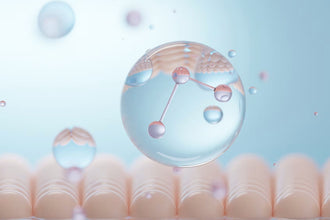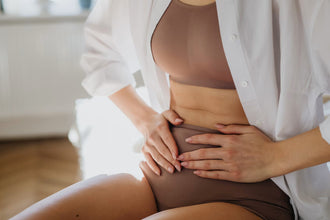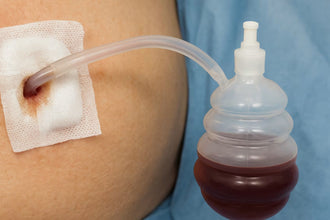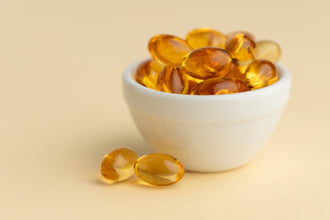
Enhancing Recovery with Targeted Supplements After Breast Augmentation
Introduction
Breast enlargement is a popular beauty surgery that needs good care after the operation to get the best results. Healing well doesn't only mean rest and doctor's visits—it also means using the right supplements and ways to take care of scars. This article talks about the important supplements and care methods that help a lot with breast enlargement surgery recovery.
Key Supplements for Healing After Surgery
1. Glutamine: Helps Muscles Heal and Strengthens the Immune System
Glutamine is an important building block for protein that helps fix muscles and makes the immune system stronger. This is very helpful after getting breast enlargement.
What Glutamine Does:
- Muscle Healing: It aids in fixing muscles that were affected during surgery, especially near the chest.
- Immune Help: It boosts the immune system, lowering the chance of getting infections after surgery.
2. Vitamin A: Helps Skin and Tissues Heal
Vitamin A is great for keeping the skin healthy and helping new tissues grow. It's really important for the healing of cuts from surgery.

How to Use Vitamin A:
- Amount: Usually, taking 700-900 mcg every day is advised, but talk to a doctor first.
- Where to Get It: Eat more carrots, sweet potatoes, and green veggies.
3. Magnesium: Eases Muscle Pain and Helps You Sleep Better
Magnesium is known for making muscles relax and helping you sleep better, which are both very important for healing after surgery.
Why Magnesium is Good:
- Eases Sore Muscles: Helps with muscle pain in the chest and shoulders.
- Better Sleep: Helps you sleep better, which is key for healing.
| Supplement | Benefits | Sources | Dosage Recommendations |
|---|---|---|---|
| Glutamine | Muscle Healing, Immune Help | Meat, Fish, Dairy, Eggs | Follow healthcare provider's advice |
| Vitamin A | Skin and Tissue Healing | Carrots, Sweet Potatoes, Leafy Greens | 700-900 mcg daily (consult a doctor) |
| Magnesium | Eases Muscle Pain, Better Sleep | Nuts, Seeds, Whole Grains, Spinach | Follow healthcare provider's advice |
Better Scar Care Methods
Using Silicone Gel and Sheets
Taking good care of scars is very important when recovering from breast enlargement. Silicone products help scars look better by keeping them moist and helping with collagen.
Adding Support to Fight Inflammation
Bromelain and Quercetin: Help with Swelling and Speed Up Recovery
Bromelain (from pineapples) and Quercetin (a strong natural compound) work together to lower swelling and help the body heal.
How They Help:
- Fight Inflammation: Both help lessen swelling and bruises after surgery.
- Faster Healing: Quercetin fights off harmful things and speeds up recovery.
| Supplement | Source | Dosage Recommendations | Key Benefits |
|---|---|---|---|
| Bromelain | Pineapples | Follow healthcare provider's advice | Reduces swelling, aids in soft tissue healing |
| Omega-3 Fatty Acids | Fish oil, Fatty fish (salmon, mackerel) | 1000-3000 mg per day (consult healthcare provider) | Anti-inflammatory, supports heart health |
| Quercetin | Apples, Onions, Green tea | Follow healthcare provider's advice | Reduces inflammation, boosts antioxidant activity |
Probiotics: Keeping Your Gut Healthy
Using antibiotics during and after surgery can mess up your gut's good bacteria. Probiotics bring back that balance, helping with health and healing.
Why Probiotics are Good:
- Gut Health: They help get your gut bacteria back to normal, which means better digestion and nutrient intake.
- Immune Boost: They make the immune system better at fighting off infections.
Ways to Get Better After Breast Surgery
Dealing with Stress and Staying Positive
Stress can slow down how fast you heal and make swelling worse. Using ways to handle stress is key to getting better all around.

Ways to Lessen Stress:
- Meditation and Being Present: Doing these can really help lower stress and make you feel more at ease.
- Easy Yoga: Yoga that’s not too hard can keep you flexible and take away stress without harming the surgery area.
Getting Good Sleep for Healing
Sleeping well is super important for getting better after getting breast implants. Your body fixes and makes new cells while you sleep, which you really need to heal.
Tips for Better Sleep:
- How to Sleep: Lying on your back with pillows under your upper body can take pressure off your breasts and keep the implants in the right spot.
- Making a Good Sleep Space: Make sure your bedroom is quiet, dark, and not too warm to help you sleep better.
Eating Right to Heal Faster
Eating Foods That Don’t Cause Inflammation
Eating foods that fight swelling can help you heal and keep you healthy. Foods that are full of antioxidants, have a lot of omega-3 fats, and are high in fiber can make inflammation go down.
What to Eat:
- Fruits and Veggies: Eat stuff like berries, dark green veggies, and veggies like broccoli.
- Good Fats: Eat foods with healthy fats, like olive oil, avocados, and fish that have a lot of fat, for example, salmon and mackerel.
- Grains That Are Good for You: Choose grains that are whole, like quinoa, brown rice, and oats. They have the nutrients and fiber your body needs.
Drinking Enough Water

It’s really important to drink a lot of water so you get better because water helps get nutrients to your cells and gets rid of waste.
Tips for Staying Hydrated:
- How Much Water to Drink: Try to drink at least eight glasses of water a day, 8 ounces each, or more if your doctor says you should.
- Avoid Drinks That Make You Lose Water: Try not to drink too much coffee or alcohol since they can make you lose water.
Checking on Your Healing and Making Changes if Needed
Seeing your doctor regularly after surgery is important to see how you’re doing and if your plan for getting better needs any changes. These visits can catch any problems early and make sure you heal the way you should.

What to Check:
- Looking at Scars: Keep an eye on your scars to make sure they’re healing right and change how you care for them if you need to.
- Changing Supplements: As you get better, what your body needs might change, so it’s important to think about what supplements you’re taking and if you need to adjust them.
Conclusion
Recovering from breast augmentation involves a multifaceted approach that includes targeted supplementation, advanced scar management, and holistic support strategies.
By incorporating supplements like Glutamine, Vitamin A, and Magnesium, along with effective use of silicone scar treatments and anti-inflammatory compounds, patients can significantly improve their recovery experience and achieve the best possible outcomes from their surgery.
Always consult with a healthcare provider to tailor the recovery plan to individual needs and ensure the safest and most effective approach.
References:
https://www.ncbi.nlm.nih.gov/pmc/articles/PMC6266414/
https://www.ncbi.nlm.nih.gov/pmc/articles/PMC2908954/
https://www.medicalnewstoday.com/articles/320233
https://www.ncbi.nlm.nih.gov/pmc/articles/PMC3539293/
General Disclaimer: All information here is for educational purposes only and is not meant to cure, heal, diagnose nor treat. This information must not be used as a replacement for medical advice, nor can the writer take any responsibility for anyone using the information instead of consulting a healthcare professional. All serious disease needs a physician.















